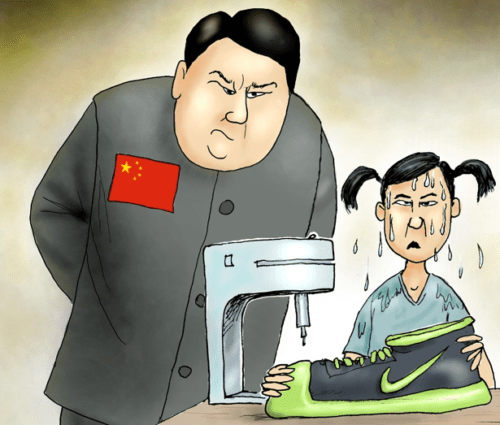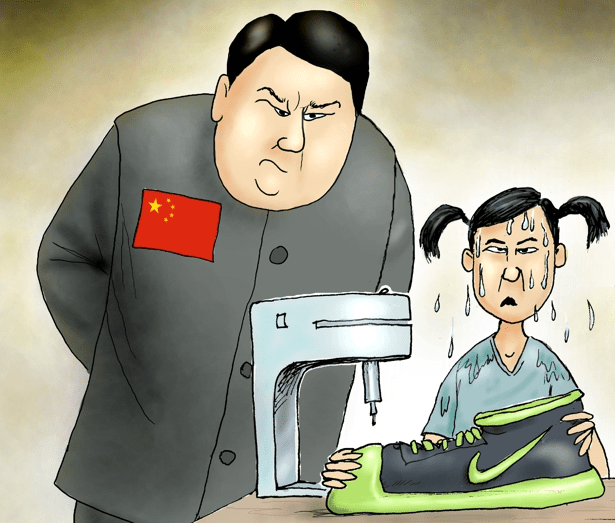
U.S. mutual funds and pension funds, including private, state and local government pensions, have invested about $251 billion in Chinese equities and bonds including Hong Kong, according to an Americans for Limited Government estimate of U.S. Treasury data.
That is out of a total of $381 billion that U.S. residents have invested in China and Hong Kong as of April 2020, according to the U.S. Treasury.
The estimate derives from mutual funds holding $6.1 trillion of all U.S.-held foreign securities, and pension funds holding $1.3 trillion — or about 66 percent of the $11.3 trillion of total U.S. holdings of foreign securities as of 2018.
Assuming a similar split among the $381 billion of Chinese equities and bonds, 66 percent of the total comes to the $251 billion rough estimate of mutual and pension funds that are invested in China. A deeper analysis of Treasury data on retirement accounts would be required to get a more accurate reading on the true amount.
Steven Schoenfeld, founder and chief investment officer of BlueStar Indexes, noted in a January ForeignPolicy.com column in a separate estimate noted on pension funds alone invested in China: “BlueStar estimates that just the 30 largest U.S. public pension plans have more than $150 billion in emerging market equities, of which more than $50 billion is now invested in Chinese companies.”
Suffice to say, there are a lot of U.S. retiree dollars invested in state-owned companies in China.
Here’s the problem. A good chunk of the investment that includes manufacturing in China that is built on child and slave labor, according to the annual report on child and forced labor by the Department of Labor Bureau of International Labor Affairs. The report details any investment in companies producing textiles are made by child labor, artificial flowers, Christmas decorations, coal, footwear and garments and nails are made by forced labor, and bricks, cotton, electronics, fireworks and toys are made by child and forced labor.
Meaning, because millions of U.S. investors and pensioners own tens of billions of dollars of shares of these companies who are abusing their labor forces, we are effectively slave owners — despite having abolished slavery 155 years ago in 1865 at the end of the Civil War.
Which is why Americans for Limited Government President Rick Manning has organized a coalition of more than 230 conservative leaders who in a letter on July 30 urged Labor Secretary Eugene Scalia to classify risky, non-transparent, Chinese state-owned companies to be unsuitable for investment in pensions under the Employee Retirement Income Security Act (ERISA) and the pending regulation on Financial Factors in Selecting Plan Investments.
The letter states, “many Chinese companies whose stocks are owned by U.S. retirement accounts and defined benefits pension plans are up to their necks in producing goods using child- and slave-labor. By allowing investments into these companies, the Labor Department is effectively making individual 401(k) owners or pensioners parties to and profiteers from the exploitation of the victims of such cruel abuse. This is wholly repugnant and unacceptable.”
Thankfully, the federal government under the leadership of President Donald Trump has already taken steps to divest U.S. federal pensioners from Chinese state-owned companies.
In May, Labor Secretary Scalia’s excluded risky Chinese assets from the federal employees 401(K) Thrift Savings Plan. In his decision, he stated he had to stop including Chinese assets because, in his words, it “would place millions of federal employees, retirees, and service-members in the untenable position of choosing between forgoing any investment in international equities or placing billions of dollars in retirement savings in risky companies that pose a threat to U.S. national security.”
In addition, in July 7 letter from National Security Advisor Robert O’Brien and Larry Kudlow, Director of the National Economic Council to the head of the U.S. Railroad Retirement Board urging divestment of Chinese assets, they stated, “The NRRI’s Trust’s investment in the PRC exposes the retirement funds of railroad workers to significant and unnecessary economic risk.”
O’Brien and Kudlow added, “Another key reason why the NRI Trust’s investments in PRC companies expose American railroad retirees to substantial economic risk is because the Chinese government prevents companies with Chinese operations listed on U.S. exchanges from complying with applicable U.S. securities laws, leaving investors without the benefit of important protections.”
By Scalia and the White House’s own words, these investments endanger national security, do not meet up with federal transparency requirements and pose pensioners with unnecessary financial risks.
Now, nine members of the House of Representatives, U.S. Reps. Daniel Webster (R-Fla.), Louie Gohmert (R-Texas), Francis Rooney (R-Fla.), Scott Perry (R-Pa.), Paul Gosar (R-Ariz.), Steve King (R-Iowa), Denver Riggleman (R-Va.), Bill Posey (R-Fla.) and Jim Hagedorn (R-Minn.) have gone ahead and sent a similar letter to Scalia, urging, “We ask that you consider amending the proposed rule to require any company seeking eligibility for American retirement or pension investment meet U.S. statutory and regulatory transparency standards. Currently, Chinese companies receive a waiver of these requirements under a Memorandum of Understanding from the Obama Administration. This arrangement has allowed U.S. retirement investment in Chinese companies engaging in human rights abuses and child and slave labor. Unfortunately, this situation causes American 401(k) owners and pensioners to unknowingly profit from these unjust and appalling practices. Growing Chinese influence on American investment portfolios is also a national security concern.”
These Congressmen are exactly right, and now it is finally time for the Labor Department to act.
In short, if investment by federal pensioners in Chinese state-owned companies that utilize slavery and which endanger national security are unsuitable for federal pensioners, then under ERISA, they are unsuitable for private pensioners, too. America stands for freedom and against slavery, and now, President Trump and Labor Secretary Scalia can affirm that means everywhere — not just in the U.S.
Robert Romano is the Vice President of Public Policy at Americans for Limited Government. Reproduced with permission. Original here.
